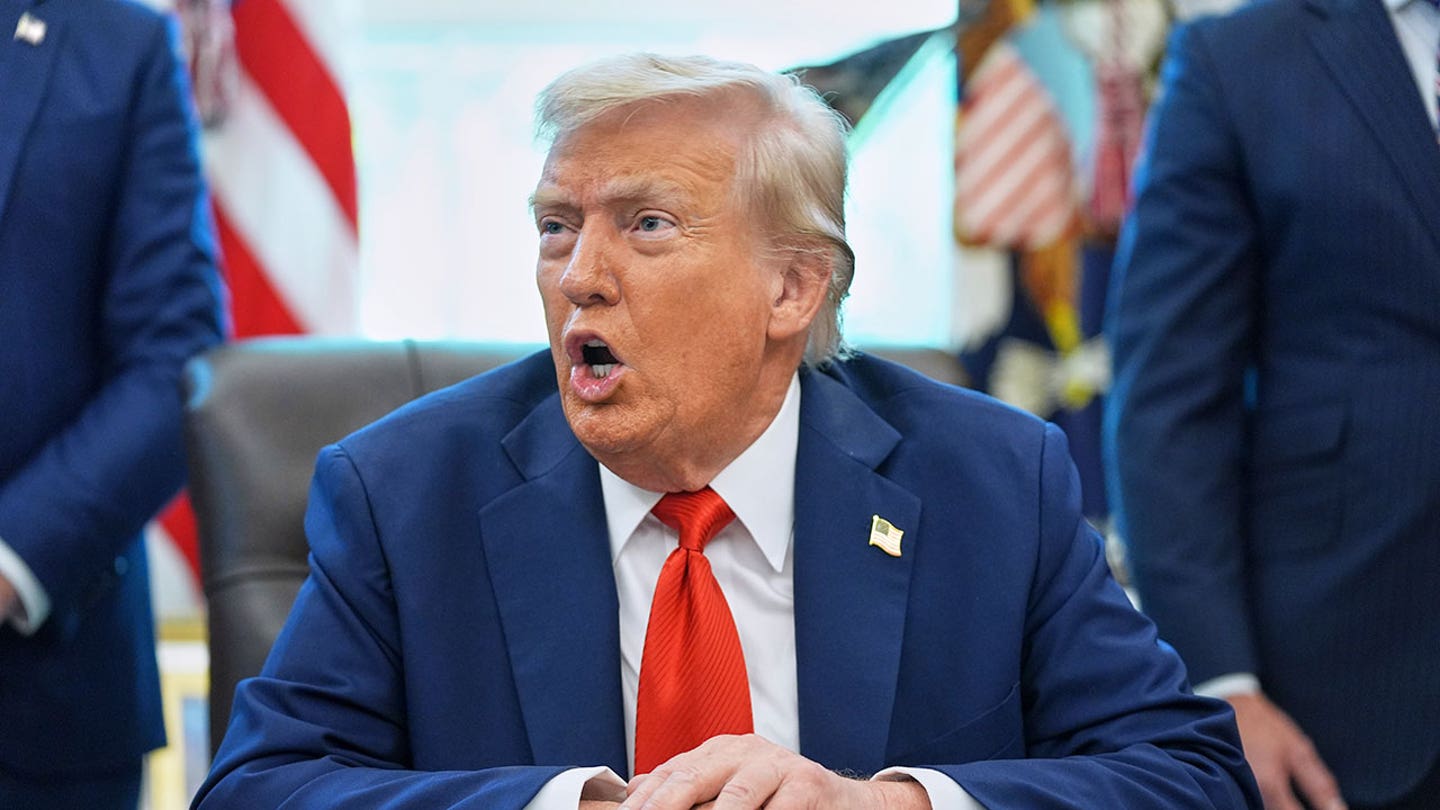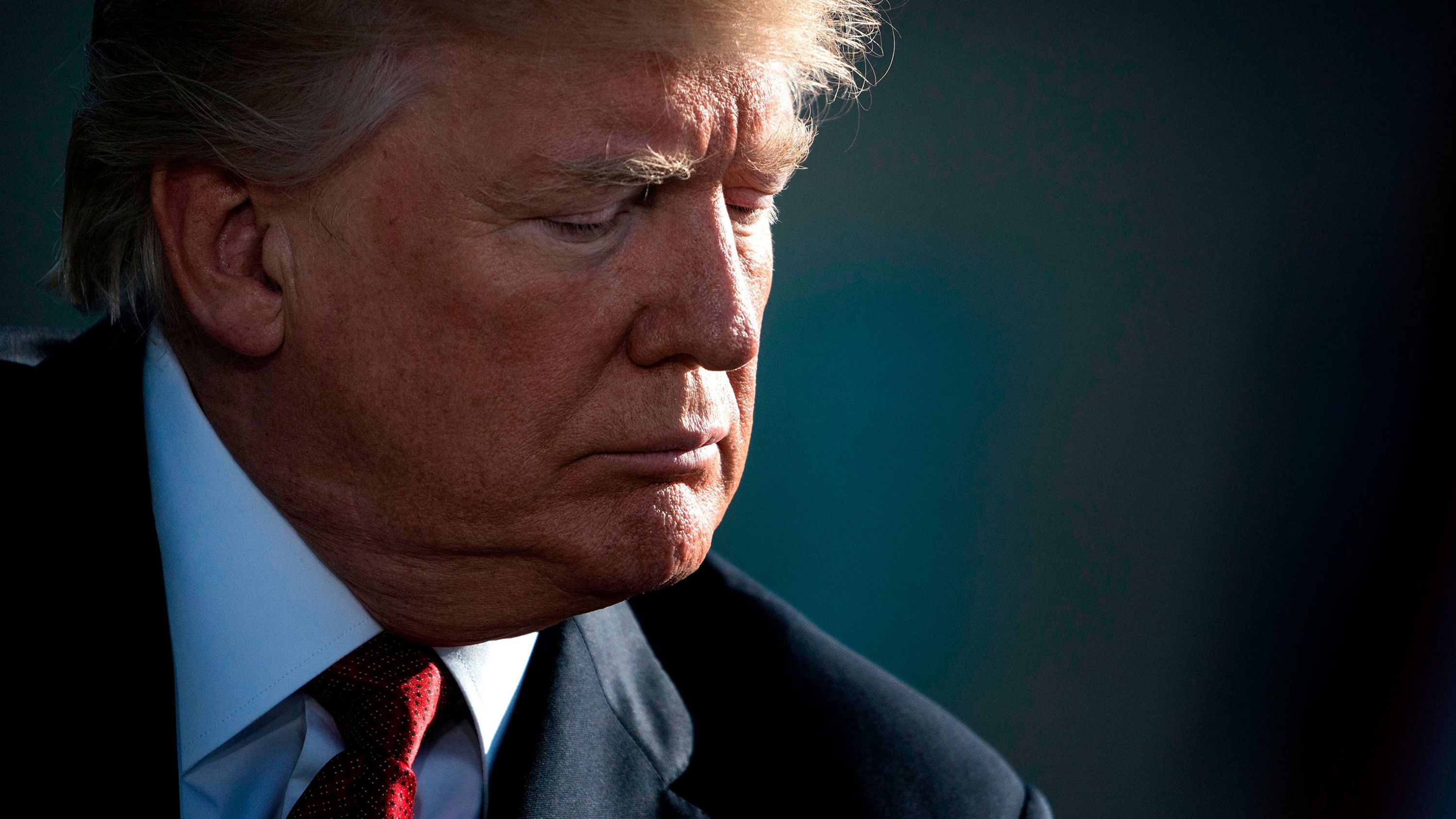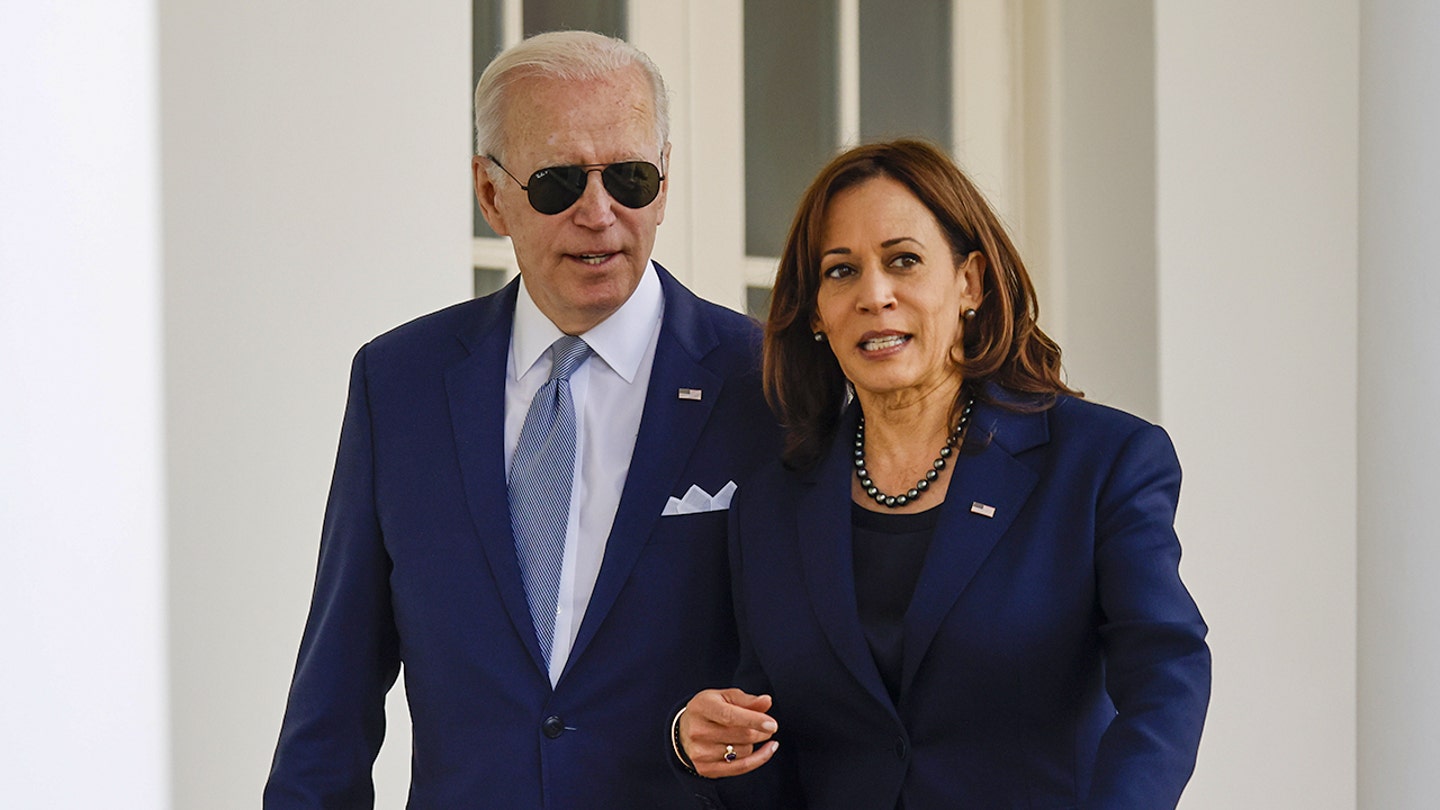
Democrats opposed John Bolton for years — until they sought him as an ally against Trump
Entities mentioned:
- John Bolton: Power, Influence, Professional pride
- Democrats: Political advantage, Justice, Moral outrage
- Donald Trump: Power, Control, Self-preservation
- Joe Biden: Duty, Justice, Competitive spirit
- George W. Bush: Power, Legacy, Security
- Adam Schiff: Justice, Duty, Competitive spirit
Article Assessment:
Credibility Score: 75/100
Bias Rating: 55/100 (Center)
Sentiment Score: 40/100
Authoritarianism Risk: 35/100 (Generally Democratic)
Bias Analysis:
The article presents multiple perspectives and historical context, showing a relatively balanced approach. However, there's a slight lean towards framing Democrats' actions as opportunistic, which could be interpreted as a center-right perspective.
Key metric: Political Polarization Index
As a social scientist, I analyze that this article highlights the complex and shifting nature of political alliances in the United States. The Democrats' evolving stance on John Bolton demonstrates how political motivations can override ideological consistency. This case study in political polarization shows how figures can be vilified or embraced based on their utility in opposing a common adversary, in this case, Donald Trump. The article underscores how the impeachment process and subsequent events have deepened partisan divides, with both sides willing to realign their allegiances for political gain. This flexibility in political positioning, while potentially pragmatic, may contribute to public cynicism about political consistency and principle, potentially eroding trust in democratic institutions.

Trump opens door to 600,000 Chinese students amid Beijing trade talks
Entities mentioned:
- Donald Trump: Power, Control, Influence
- China: Power, Competitive spirit, Influence
- Marco Rubio: Security, Wariness, Duty
- Xi Jinping: Power, Influence, Control
- Joe Biden: Legacy, Influence, Duty
Article Assessment:
Credibility Score: 70/100
Bias Rating: 55/100 (Center)
Sentiment Score: 60/100
Authoritarianism Risk: 35/100 (Generally Democratic)
Bias Analysis:
The article presents multiple viewpoints and includes direct quotes, suggesting an attempt at balanced reporting. However, there's a slight lean towards framing Trump's decisions positively, particularly in contrast to the previous administration.
Key metric: US-China Economic Relations
As a social scientist, I analyze that this article highlights a significant shift in the Trump administration's approach to Chinese students in the US, potentially signaling a thaw in US-China relations. The decision to allow 600,000 Chinese students into the US appears to be a strategic move in the context of ongoing trade negotiations. This policy shift could have substantial economic implications, as international students contribute significantly to the US economy. However, it also raises questions about national security concerns previously expressed by administration officials like Marco Rubio. The article suggests that Trump is prioritizing economic benefits over security concerns, which could impact future policy decisions regarding China. The mention of tariffs and trade talks indicates that economic considerations are at the forefront of US-China relations, with educational exchanges being used as a potential bargaining chip.

Gallery
Entities mentioned:
- Donald Trump: Power, Ambition, Revenge
- Kamala Harris: Ambition, Duty, Legacy
- Joe Biden: Legacy, Duty, Power
- Hillary Clinton: Ambition, Power, Legacy
- Michael Cohen: Loyalty, Self-preservation, Revenge
- Stormy Daniels: Recognition, Justice, Influence
- Jack Smith: Justice, Duty, Professional pride
- Fani Willis: Justice, Ambition, Professional pride
Article Assessment:
Credibility Score: 65/100
Bias Rating: 55/100 (Center)
Sentiment Score: 35/100
Authoritarianism Risk: 70/100 (Authoritarian Tendencies)
Bias Analysis:
The article presents a mix of factual information and potentially controversial claims without clear attribution. While it covers events from various perspectives, the tone and framing slightly favor a more dramatic narrative of Trump's comeback.
Key metric: Democratic Stability Index
As a social scientist, I analyze that this article depicts a significant shift in the American political landscape, with implications for democratic norms and institutions. Trump's re-election despite legal challenges and his subsequent actions suggest a weakening of traditional checks and balances. The dropping of federal cases and the disqualification of a district attorney in a state case indicate potential political interference in the justice system. The assassination attempt highlights the intense polarization and potential for political violence. These developments could lead to a decline in the Democratic Stability Index, as they represent a departure from established democratic norms and potentially signal a move towards more authoritarian governance styles.
- Read more about Gallery
- Log in to post comments

Justice Department declines to defend grants for Hispanic-serving colleges, calling them unconstitutional
Entities mentioned:
- Trump administration: Control, Righteousness, Influence
- Justice Department: Duty, Righteousness, Justice
- Congress: Unity, Justice, Influence
- State of Tennessee: Justice, Competitive spirit, Self-preservation
- Students for Fair Admissions: Justice, Righteousness, Influence
- Hispanic Association of Colleges and Universities: Self-preservation, Justice, Unity
- Joe Biden: Unity, Influence, Recognition
Article Assessment:
Credibility Score: 75/100
Bias Rating: 55/100 (Center)
Sentiment Score: 35/100
Authoritarianism Risk: 45/100 (Mixed/Neutral)
Bias Analysis:
The article presents multiple viewpoints and cites various sources, including both supporters and opponents of the HSI program. While it provides context for the Trump administration's position, it also includes counterarguments and historical information, maintaining a relatively balanced approach.
Key metric: Higher Education Equity
As a social scientist, I analyze that this decision by the Trump administration to not defend the Hispanic-Serving Institution (HSI) grant program could significantly impact higher education equity in the United States. The move aligns with the administration's broader stance against affirmative action and race-conscious policies, following the 2023 Supreme Court decision on college admissions. This decision could potentially reduce funding and support for institutions serving a large proportion of Hispanic students, who have historically been underrepresented in higher education. The conflict between the program's intentions to address educational disparities and the legal challenges based on constitutional grounds highlights the ongoing tension in U.S. education policy between equity efforts and interpretations of equal protection under the law. This situation may lead to a reevaluation of how educational support programs are structured and justified, potentially shifting towards more race-neutral approaches to addressing educational disparities.

Who is John Bolton? What to know about Trump’s former national security adviser
Entities mentioned:
- John Bolton: Righteousness, Influence, Professional pride
- Donald Trump: Power, Control, Revenge
- FBI: Duty, Justice, Security
- Joe Biden: Ambition, Duty, Power
- George W. Bush: Power, Loyalty, Legacy
Article Assessment:
Credibility Score: 75/100
Bias Rating: 55/100 (Center)
Sentiment Score: 35/100
Authoritarianism Risk: 45/100 (Mixed/Neutral)
Bias Analysis:
The article presents a relatively balanced view of John Bolton's career and controversies, including criticism from both sides of the political spectrum. While it does highlight Trump's conflicts with Bolton, it also mentions Bolton's disagreements with Democrats, maintaining a centrist perspective.
Key metric: Political Polarization Index
As a social scientist, I analyze that this article highlights the complex interplay between political figures, institutions, and the justice system in the United States. The focus on John Bolton's career trajectory and his relationship with various administrations, particularly his tumultuous tenure under Trump, underscores the increasing polarization in American politics. The FBI's search of Bolton's property, allegedly related to his memoir, raises questions about the potential weaponization of government agencies against political opponents. This event could further erode public trust in institutions and exacerbate existing political divisions, potentially leading to an increase in the Political Polarization Index. The article also touches on broader themes of national security, foreign policy, and the delicate balance between transparency and classified information, all of which contribute to the overall political climate.

Trump’s tortured history of legally targeting his foes
Entities mentioned:
- Donald Trump: Revenge, Power, Control
- John Bolton: Loyalty, Professional pride, Self-preservation
- Chris Christie: Ambition, Competitive spirit, Self-preservation
- Greg Gutfeld: Loyalty, Righteousness, Indignation
- Kilmar Abrego Garcia: Self-preservation, Freedom, Justice
- Joe Biden: Self-preservation, Legacy, Duty
- Hunter Biden: Self-preservation, Recognition, Ambition
- John Durham: Professional pride, Duty, Justice
- William Barr: Loyalty, Power, Influence
Article Assessment:
Credibility Score: 75/100
Bias Rating: 40/100 (Lean Left)
Sentiment Score: 35/100
Authoritarianism Risk: 65/100 (Authoritarian Tendencies)
Bias Analysis:
The article leans slightly left, evidenced by its critical tone towards Trump and more sympathetic portrayal of his opponents. However, it does provide factual information and context, balancing its perspective somewhat.
Key metric: Rule of Law Index
As a social scientist, I analyze that this article highlights a concerning trend of potential weaponization of the justice system for political purposes. The contrast between the success rates of prosecutions against Trump and his allies versus Trump's allegations against his opponents suggests a pattern of using legal threats as a political tool without substantial evidence. This behavior risks eroding public trust in the justice system and could negatively impact the Rule of Law Index, which measures the extent to which a country adheres to the rule of law in practice. The article suggests that Trump's administration may be using investigations to intimidate critics rather than pursue legitimate justice, which could lead to a decline in the perception of government accountability and fair application of the law.

GOP senators push for Kamala Harris' testimony as House Oversight eyes subpoena
Entities mentioned:
- GOP senators: Accountability, Justice, Control
- Kamala Harris: Self-preservation, Loyalty, Duty
- House Oversight Committee: Accountability, Justice, Control
- Joe Biden: Self-preservation, Legacy, Power
- Roger Marshall: Professional pride, Righteousness, Influence
- James Comer: Accountability, Influence, Justice
- Richard Blumenthal: Loyalty, Duty, Self-preservation
- John Hoeven: Accountability, Duty, Influence
Article Assessment:
Credibility Score: 65/100
Bias Rating: 70/100 (Lean Right)
Sentiment Score: 30/100
Authoritarianism Risk: 45/100 (Mixed/Neutral)
Bias Analysis:
The article leans right due to its focus on Republican perspectives and allegations against the Biden administration. While it includes a brief Democratic counterpoint, the majority of the content amplifies GOP criticism and concerns.
Key metric: Political Polarization Index
As a social scientist, I analyze that this article highlights increasing political polarization in the U.S. The GOP's push for Harris' testimony and the focus on Biden's alleged cognitive decline demonstrate a partisan approach to oversight. This could potentially widen the divide between Democrats and Republicans, affecting public trust in institutions and inter-party cooperation. The emphasis on Biden's perceived weaknesses and their alleged impact on national security further intensifies the partisan narrative. This polarization could lead to decreased governmental effectiveness and increased public cynicism towards political processes.

Trump gave the Oval Office a gilded makeover – and covered the cost himself
Entities mentioned:
- Donald Trump: Pride, Legacy, Recognition
- White House: Professional pride, Legacy, Influence
- Joe Biden: Legacy, Duty, Influence
Article Assessment:
Credibility Score: 65/100
Bias Rating: 55/100 (Center)
Sentiment Score: 70/100
Authoritarianism Risk: 30/100 (Generally Democratic)
Bias Analysis:
The article presents a generally neutral tone, providing factual details about the changes made to the Oval Office. However, there's a slight lean towards positive framing of Trump's actions, emphasizing his personal financing and 'golden touch' without critical perspectives.
Key metric: Presidential Approval Rating
As a social scientist, I analyze that this article's focus on Trump's personal financing of White House renovations and aesthetic changes may impact public perception of his presidency. The emphasis on gold accents and luxurious additions could be seen as either a display of wealth and success or as excessive and out of touch with average Americans. This could potentially influence approval ratings, particularly among different socioeconomic groups. The article's highlighting of Trump's personal investment in these changes may also affect perceptions of his commitment to the office and his willingness to use personal resources for what he sees as improvements to the nation's most iconic building.

Tulsi Gabbard revokes security clearances of 37 current and former national security officials
Entities mentioned:
- Tulsi Gabbard: Power, Control, Righteousness
- Joe Biden: Self-preservation, Legacy
- Barack Obama: Legacy, Self-preservation
- John Ratcliffe: Loyalty, Duty
- Pam Bondi: Justice, Duty
- Donald Trump: Power, Revenge, Self-preservation
- Mark Zaid: Justice, Professional pride
Article Assessment:
Credibility Score: 65/100
Bias Rating: 55/100 (Center)
Sentiment Score: 30/100
Authoritarianism Risk: 70/100 (Authoritarian Tendencies)
Bias Analysis:
The article presents multiple viewpoints, including Gabbard's justification and critics' concerns. However, it gives more space to criticisms of the action, suggesting a slight lean towards skepticism of Gabbard's motivations.
Key metric: National Security Effectiveness
As a social scientist, I analyze that this action by DNI Gabbard significantly impacts national security effectiveness by potentially removing experienced professionals from critical roles. The revocation of security clearances for 37 current and former officials, particularly those involved in assessing Russian interference in the 2016 election, may lead to a loss of institutional knowledge and expertise. This could hinder the intelligence community's ability to accurately assess and respond to future threats. Furthermore, the move appears to be politically motivated, which may erode trust within the intelligence community and between agencies and the administration. This erosion of trust could lead to reduced information sharing and cooperation, ultimately weakening national security capabilities. The action also sets a concerning precedent for using security clearance revocations as a tool for political retaliation, which could have a chilling effect on intelligence professionals' willingness to provide honest, objective assessments that may be politically inconvenient.

White House joins TikTok after delaying enforcement of sale-or-ban law
Entities mentioned:
- White House: Influence, Recognition, Control
- TikTok: Self-preservation, Influence, Security
- Bytedance: Self-preservation, Control, Security
- Donald Trump: Power, Control, Influence
- Joe Biden: Security, Duty, Control
- United States: Security, Control, Power
- China: Power, Control, Influence
Article Assessment:
Credibility Score: 75/100
Bias Rating: 55/100 (Center)
Sentiment Score: 45/100
Authoritarianism Risk: 40/100 (Generally Democratic)
Bias Analysis:
The article presents a relatively balanced view, incorporating multiple perspectives and historical context. While it leans slightly towards emphasizing the administration's actions, it also includes background on security concerns and bipartisan support for the ban.
Key metric: US-China Relations
As a social scientist, I analyze that the White House's decision to join TikTok amidst ongoing national security concerns and pending legislation reflects a complex interplay of diplomatic, economic, and political factors. This move suggests a potential shift in the US approach to Chinese-owned technology platforms, possibly indicating a desire for engagement rather than isolation. The repeated delays in enforcing the sale-or-ban law demonstrate the administration's struggle to balance national security concerns with the app's popularity and potential diplomatic repercussions. This development could significantly impact US-China relations, as it may be interpreted as a softening stance on Chinese tech influence in the US, potentially affecting broader trade and diplomatic negotiations.